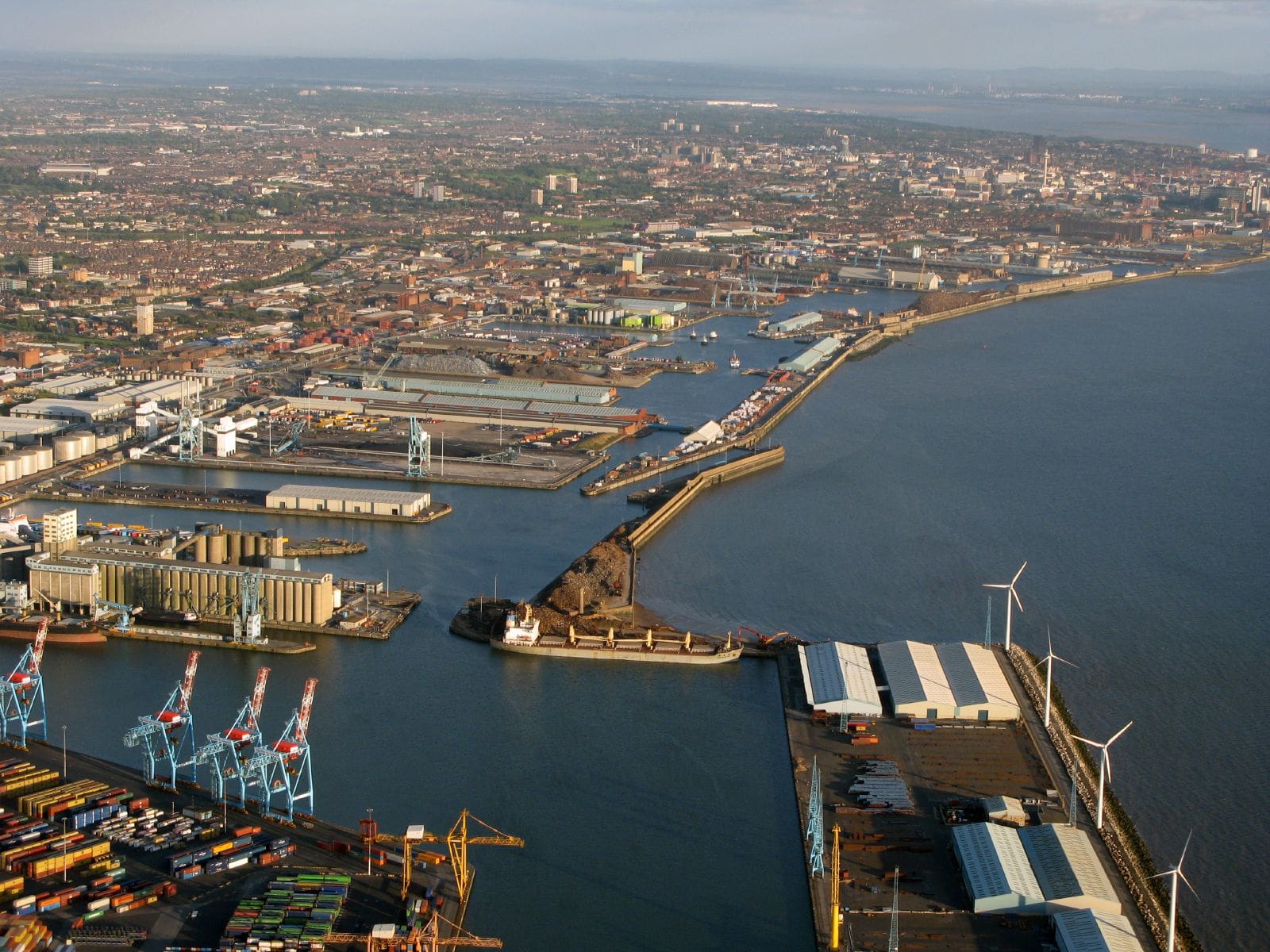
Australia ships the occasional cargo of canola to the UK for discharge at the Port of Liverpool. Source: Mersey Docks
IN ADVANCE of King Charles III’s coronation, Australian and UK Prime Ministers Albanese and Sunak met in London yesterday, announcing the long-awaited entry into force date of June 1 for the Australia-UK Free Trade Agreement, following the expected completion of UK domestic processes.
The occasion marks a significant week for both Australia’s head of state and new era for Australia-UK trade relations.
The A-UK FTA, which was agreed-to in principle in June 2021 and signed in December that year, will see Australian beef and sheep/goat meat access to the UK liberalised over a transition period.
“The FTA marks a new chapter in Australia-UK trade relations and, for our sector, provides an important framework to continue to do business with British customers and consumers,” chair of the Australia-UK Red Meat Market Access Taskforce Andrew McDonald said.
“Australia and the UK have a long history of trade with British consumers being loyal purchasers of Australian beef and sheepmeat,” he said.
“The FTA provides an opportunity to modernise our trading relationship for the future, and we look forward to more streamlined trade and reduced supply chain costs with the implementation of the agreement.”
From 1 June, Australian beef and sheepmeat exports will enter the UK under a new tariff rate quota regime – with initial TRQ tonnages gradually increasing over a ten-year transition period. Product within the TRQ amounts will enter tariff free.
While there will be no TRQ regime post year ten, a volume safeguard provision will apply until the end of year 15, beyond which no safeguards will apply.
“We congratulate the Prime Ministers on finalising this significant milestone in Australia-UK relations and express our gratitude to all who have worked diligently to realise such an outcome,” Mr McDonald said.
Australia occasionally exports panamaxes of canola to the UK, and regularly exports modest amount of chickpeas and wheat.
Its wheat imports from Australia jumped markedly in March, according to the latest data from the Australian Bureau of Statistics.
UK farmer opposition
During the FTA negotiation phase, there was strident and sometimes bitter opposition to the red meat access relaxation from some quarters of the UK farming community – especially targeting Australian grainfed beef as ‘factory farming’ and raising animals welfare questions. That came despite the common practice of shedding livestock for long periods over the UK winter.
President of the UK National Farmers Union, Minette Batters, said confirmation that the UK’s new trade deals with Australia and New Zealand will come into force at the end of the May brought into sharp focus the need for the UK government to monitor the ongoing and cumulative impacts for UK farmers and growers of the inevitable tougher trading environment they will face.
“It’s clear that UK farmers have very little to gain from these two deals. Instead we are pushing the government to focus its trade efforts on opening up markets where there’s a genuine opportunity for UK agriculture to grow our sales of fantastic products overseas,” she said.
“While it is reassuring that these deals will not result in a change in our food safety standards here – for example, imports of HGP-treated beef will still be banned – we must ensure that the government’s commitment to uphold the UK’s food safety standards in all deals it negotiates remains unwavering.”
A statement issued by the UK Government yesterday said both Australian and NZ trade deals would drive economic growth and innovation across the UK, Australia and NZ through the removal of tariffs on all UK goods exports, open unprecedented access for services, cutting of red tape for digital trade, and by making it easier for UK professionals to live and work in Australia and New Zealand.
The FTA deals came just weeks after the UK concluded negotiations to join the Comprehensive and Progressive Trans-Pacific Partnership (CPTPP), a free trade area worth £9 trillion, “putting the UK at the heart of a trading powerhouse.”
Prime Minister Rishi Sunak said the trade deals with Australia and New Zealand squarely delivered on his priorities to drive economic growth, boost innovation and increase highly skilled jobs across the UK.
“It ensures we and our closest friends continue to prosper for generations to come,” he said.
Business and Trade Secretary, Kemi Badenoch, said putting the trade deals into action would help create new opportunities for UK business, boosting wages and helping spur economic growth.
“There are robust protections for British farmers in both deals, including staging tariff liberalisation for sensitive goods over time,” the government said.
The UK and Welsh Governments have now made the final legislative changes needed to bring the trade deals into action.
Source: MLA



HAVE YOUR SAY